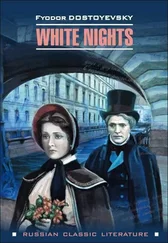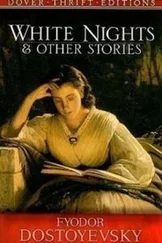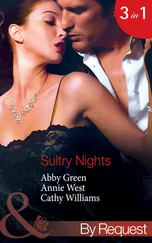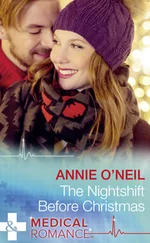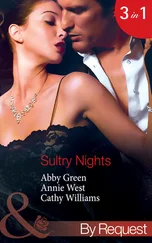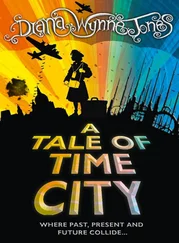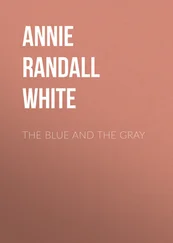“Fuck,” Fender said. “The cops will be all over my place.”
“Ray’s a drunk,” I said. “They’ll probably just think he did it himself. If not, Ruth will blame him.”
“Why would a man steal his own liquor?” Fender said.
“Maybe he forgot where he’d hidden it,” I said.
When we emerged from the woods, we sat on the old boulder that lined the road in front of the drive to the Starlings’ house. The old blind guy in the golf hat lived there with his fat wife. Sweet people too. No one ever heard much of them. The man drove an old yellow Volvo. Occasionally he took it out when his wife wasn’t home. I’d seen him rushing headlong down the wrong side of the road. He had that old people way of taking life on the offensive. People said he kept the boulder at the end of his drive so he’d know when to turn. Father’d gone over once in a storm. The snow had been so high that it took out the electricity for several days. The fifth day, Father got to worrying. If the old couple perished, he’d feel responsible. Mid-day he put on his tall rubber boots. Mother gave him cans of baked beans and creamed corn. When Father returned home he said the couple had been living on Spam and soda crackers. The old fatty had tried heating soup over a candle.
“You think they’re alive in there?” Fender said looking back at the house. The lights were off. Given the hour that didn’t mean anything.
“I don’t know,” I said. “Just be careful not to trip the flood. Father says they’ve got a light system on that house to scare a criminal. The old guy waits until the cat trips the alarm to get up to piss at night.”
In the distance we heard a group of people coming down the road. Father was among them. I recognized the way he lumbered. When he walked he kicked up half of the dirt in front of him. This is what they mean by kin. You see yourself most clearly in them when they’re just a speck on the horizon.
Otto was with them too.
It was odd to see people out at that hour. Summer had a way of dragging part of the day into the evening. There was so much heat to be had.
Fender and I hid behind the boulder until they passed.
“I’d pick them off if I could,” Fender said, lining his arm on top of the rock and cocking his finger.
“That’s my old man,” I said.
“Your old man keeps some company,” he said.
Wilson was holding up the back of the line next to Callie, the heels of his trousers dragging in the dust. Cash had brought along a few of the farm hands, migrants workers whom he kept on through the picking season. Father and Otto were the first to pass. They dragged an old horse blanket full of brushes and equipment. I recognized it from the print. It belonged to the Shetland that had died. With his free hand Father was smoking a cigar.
“I’ll pack it in when we hit the brush,” he said. He nodded up the road where it dead-ended into the trail that cut into the forest and let out onto the butte overlooking the highway.
“I knew there was a reason I spent so much time hanging around a young man,” Otto said. “Almost makes up for you stealing all my women.”
“I haven’t stolen anything yet,” Father said.
“A woman can only put out her signals so many times before she gets tired of waving her flag around,” Otto said.
“It’s a losing man’s battle,” Father said.
“The problem with men your age,” Otto said. “You’ve got your eyes trained too far ahead. You get so caught up in all this dying you’ve got left to do, you forget to get up every day and shave your damn beard.”
“I like my beard just fine,” Father said.
Otto clicked on his radio, an old transistor that he used to listen to the ballgames. “I hope the rain holds off till we get a good burn going,” he said.
Fender and I started to trail them as soon as the men were out of earshot.
They settled in the clearing overlooking the highway where Mother, Birdie, and I had sat while observing the Atlas. The sound of passing cars at that hour was nothing but the occasional screech of tires. There was a traffic light a half-mile off in the distance where the highway met the interstate. Next to the on-ramp was a weigh station for the truck drivers and the drunks.
Fender and I crouched in the bushes. The men built a fire in the sandpit. Fender said his brothers and bunch of the high school kids went there to make out on the weekends. They’d built the pit to roast hot dogs. Someone had constructed a grill out of an old bike tire to toast the buns.
Father tossed the tire to the side while Cash cleared out the pit with a rusty rake. One of the kids who frequented the spot must’ve brought the rake out there to tame the fire at the end of the night after everyone’d gotten sick of getting off.
Once the pit was good and level Father and Otto doused the Shetland’s blanket with kerosene. Ray tossed the match. The men’s faces lit up as they stood watching the flash.
“Stand back,” Otto said as Wilson started toward the flames. “There’s enough sickness burning in there. I’ve seen enough death this summer.”
Otto set the old transistor on the end of the picnic table closest to the pit. He kept Callie’s shadow in the corner of his eye. The legend was Callie’d come to him as a child. Otto’d started her in the stable as a favor. His Helene had insisted Callie live in the RV with Wilson. By the time Callie was legal, she’d shown the best horses in the county. Along the way she’d found herself a husband. It was unclear now where she slept nights. She’d turn up for days and then disappear for a stint.
That night Callie belonged to Father’s loneliness though he didn’t know it. Once the fire was burning, Otto turned up the music and got everyone on their feet. Even Father danced. Callie moved into his arms. Father stared at her and tried to pattern his body after hers. The farmhands retired into a huddle around the fire with a pack of Coors. Someone produced a bag of peanuts. Occasionally you heard the crackle of a shell exploding as they tossed it into the flames.
The remains of the Shetland’s gear burned into the evening. Though the body was cold in the ground, Otto figured there might be some disease still lurking in the earthly possessions to which the horse once belonged. Disease crept up out of the earth that summer. No one wanted to see any more of it. Especially Otto.
Just when talk had stagnated Ray emerged from the brush. He fired a round into the air on the other side of the clearing. “Pellets you animals,” he cried when the men started hollering at him. “Just thought I’d bring a little noise to scare off the coyotes.”
Ray was drunk. Otto and Father each took him by an arm.
“Dumb fuck,” Fender kept saying. “I should have stolen his bottle just to spare his wife half her hassle when he gets home.”
It was cold in the bushes. Our feet were damp. The liquor had dried out the inside of my head.
Fender shivered in his shirtsleeves until I put his arms around me under his jacket.
“There,” I said.
“So this is what old people do to get off?” Fender said, pulling me closer. “Light fires far enough from their homes that they don’t burn their wives down?”
I drifted off to the vision of a carnival. I was riding the old white hobby horse hanging on Otto’s porch. The music from the merry-go-round was loud and the smell of popcorn hung in the distance. Each time the ride made a turn my little white horse lurched forward. From the way it sounded when I tapped my fingers on the body, I could tell it was hollow, nothing but empty fiberglass. Just as the ride let out it started to burn.
I woke in the night to the sound of two men urinating in the bushes.
“I never meant to want much from her,” I heard one of them say. It sounded like Father. I wondered if he was talking about Callie. I wondered how far he’d fallen for her. I wondered if he’d pulled her into him as he’d done that morning with Mother in the kitchen.
Читать дальше
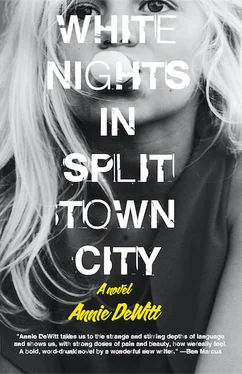
![Элизабет Ленхард - Свидание со смертью[Date With Death]](/books/79651/elizabet-lenhard-svidanie-so-smertyu-date-with-dea-thumb.webp)



